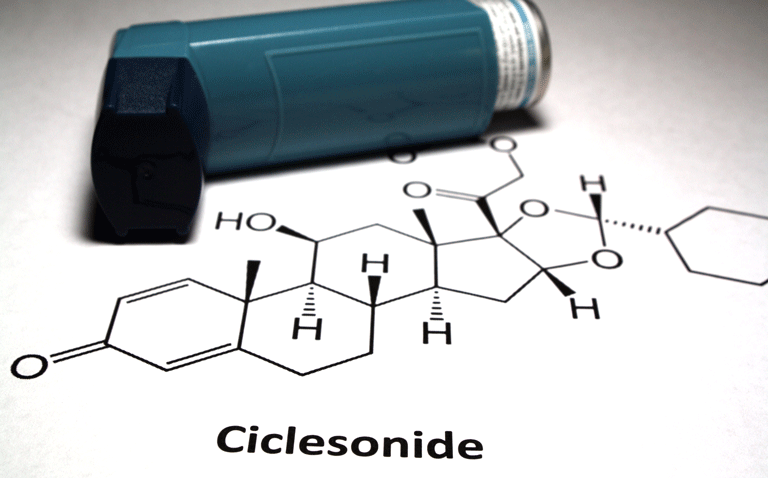Ciclesonide given as an inhaled and intranasal dose was no better than placebo for symptom resolution for those with confirmed COVID-19
Using both inhaled and intranasal ciclesonide for symptom resolution appears to be no better than placebo for patients with COVID-19. This was the conclusion of a randomised, placebo-controlled trial by a team from the Centre for Outcomes Research and Evaluation, Montreal, Canada.
With much attention currently, focused on the use of vaccines directed at COVID-19, other work has looked at re-purposing existing treatments against the virus. One potential candidate is the corticosteroid, ciclesonide, used as a preventative therapy, due to its anti-inflammatory action, in patients with asthma. In addition, in vitro work has shown that the drug is able to suppress replication of both MERS and COVID-19 therefore suggesting that they drug might be of value in those with COVID-19 respiratory symptoms although to date, no studies have explored its role as a treatment for the virus.
Based on these findings, the Canadian team hypothesised that ciclesonide could, if administered early in the course of a COVID-19 infection, reduce the respiratory symptom burden. The team recruited patients 18 years and older with a PCR confirmed COVID-19 infection, with at least one of the following symptoms: fever, cough (wet or dry) and chest symptoms including shortness of breath and chest tightness or congestion. They excluded those hospitalised because of COVID-19 and patients with non-respiratory symptoms, or if they had already been prescribed an inhaled corticosteroid. Enrolled patients were randomised, 1:1 to either inhaled ciclesonide, at a dose of 1200 micrograms twice daily combined with an intranasal dose of 200 micrograms daily or matching placebos, for 14 days. The primary outcome was self-reported symptom resolution at day 7 with secondary outcomes including hospital admission or death due to COVID-19.
Findings
A total of 203 individuals with a median age of 35 years (54% women) were randomised to either ciclesonide or placebo. The majority (86%) had cough, dyspnoea, shortness of breath, chest tightness or congestion (50%) and less than half (46%) fever. Overall, fever and respiratory symptoms had resolved in 37% of participants by day 7. The proportion of patients who had symptom resolution by day 7 was 40% (ciclesonide) and 35% (placebo) and this difference was not significant. Similarly, by day 14, the proportion of individuals with symptom resolution was not significantly different (66% vs 58%). In addition, 6 and 3 patients using ciclesonide and placebo were admitted to hospital although no deaths occurred.
Commenting on their findings, the authors discussed how the study participants were generally in good health but with a high COVID-19 symptom burden and that treatment was initiated early in the course of the infection (median time of three days). Despite the high dose of ciclesonide, it proved to be no better than placebo which was in contrast to data using budesonide, which has shown a benefit in terms of a shorter duration to symptom recovery.
They concluded that further research is required to demonstrate the value of intranasal corticosteroids in the treatment of COVID-19.
Citation
Ezer N et al. Inhaled and intranasal ciclesonide for the treatment of covid-19 in adult outpatients: CONTAIN phase II randomised controlled trial. BMJ 2021










